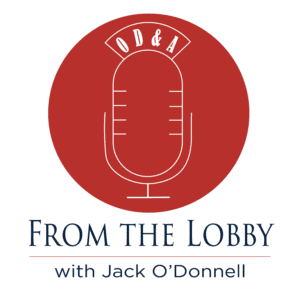Good Morning from the Nation’s Capital
On Thursday, President Joe Biden signed into law the $1.9 trillion American Rescue Plan. The bill came in just under the wire, a day before increased unemployment benefits were set to expire. Read provisions of the final bill here. The signing sets off a media blitz beginning with the President’s first prime time address last Thursday. This month, he will hold his first press conference and address to Congress.
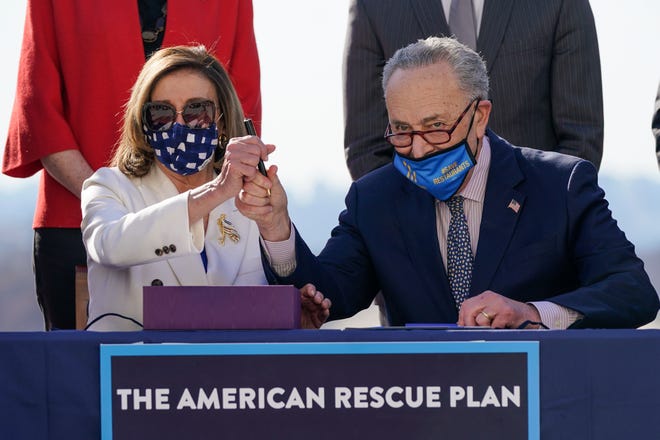 While the bill is a major accomplishment, the Biden Administration failed to win the bipartisan support many Democrats had expected. The bill passed the Senate through budget reconciliation on a 50-49 party line vote. In the House, it also did not earn a single Republican vote. The partisan dynamics facing the Biden Administration on subsequent legislative proposals are quite precarious. As far as the filibuster (which Democrats must work around to get any of the remaining litany of progressive priorities done—including bills that have sailed through the House: voter protections, policing reform, and gun safety measures), Democratic Senator Joe Manchin (D-WV) remains a staunch critic. Last week, Manchin literally yelled “Never!” at reporters who asked him whether he would ever ax the 60-vote threshold. And the sometimes moderate Republican Senator Susan Collins (R-ME)—who Democrats will be courting in the coming months—and Senate Majority Leader Chuck Schumer (D-NY)’s relationship is frostier than ever. More than four months after Collins handily dispatched Schumer’s efforts to deny her a fifth term, the moderate Maine Republican and the Senate majority leader have no relationship to speak of. And that awkward dynamic could make problems for Schumer in the coming months.
While the bill is a major accomplishment, the Biden Administration failed to win the bipartisan support many Democrats had expected. The bill passed the Senate through budget reconciliation on a 50-49 party line vote. In the House, it also did not earn a single Republican vote. The partisan dynamics facing the Biden Administration on subsequent legislative proposals are quite precarious. As far as the filibuster (which Democrats must work around to get any of the remaining litany of progressive priorities done—including bills that have sailed through the House: voter protections, policing reform, and gun safety measures), Democratic Senator Joe Manchin (D-WV) remains a staunch critic. Last week, Manchin literally yelled “Never!” at reporters who asked him whether he would ever ax the 60-vote threshold. And the sometimes moderate Republican Senator Susan Collins (R-ME)—who Democrats will be courting in the coming months—and Senate Majority Leader Chuck Schumer (D-NY)’s relationship is frostier than ever. More than four months after Collins handily dispatched Schumer’s efforts to deny her a fifth term, the moderate Maine Republican and the Senate majority leader have no relationship to speak of. And that awkward dynamic could make problems for Schumer in the coming months.
What’s next? The Biden Administration will now move onto infrastructure. While “infrastructure” has long been considered one of the only modern policy areas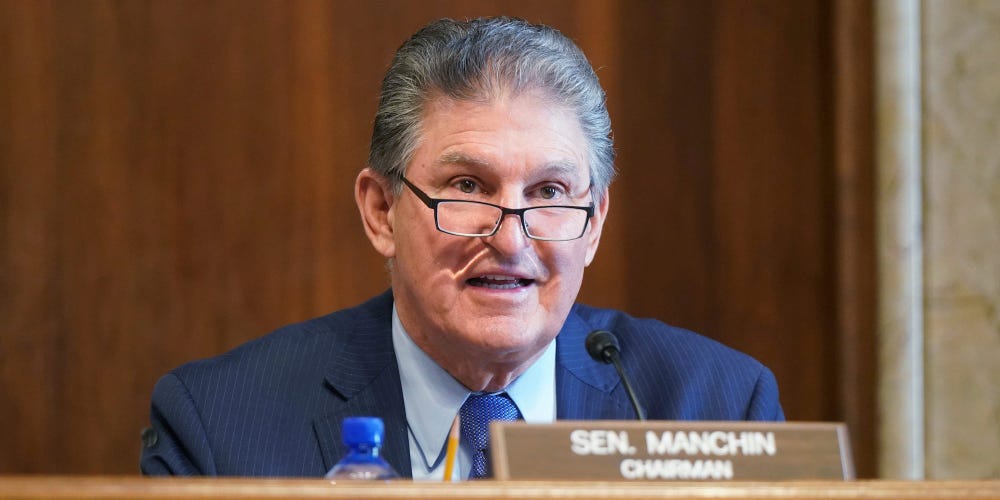 on which Republicans and Democrats agree, the chances of winning over Republicans may already be dead on arrival. Biden campaigned on a $2 trillion infrastructure plan, but many Democrats in Congress are pushing for a far larger and more expansive package—perhaps as high as $4 trillion. That number, after spending almost $1.9 trillion on a stimulus bill, is a non-starter for the GOP (keep in mind then–Senate Majority Leader Mitch McConnell called a $1.5 trillion infrastructure bill that passed the House last year a “multi-thousand page cousin of the Green New Deal masquerading as a highway bill.”) Democrats in Congress are also rumored to be pushing for far more than just “roads and bridges.” With an end to the filibuster unlikely, an omnibus infrastructure bill could be progressives one and only shot at priorities like lowering the Medicare eligibility age or a health care public option. Progressive riders will make a relatively simple issue’s politics increasingly complex. Add in the fact that Senator Joe Manchin wants to pay for the bill with tax hikes, and you are in for a wild ride…
on which Republicans and Democrats agree, the chances of winning over Republicans may already be dead on arrival. Biden campaigned on a $2 trillion infrastructure plan, but many Democrats in Congress are pushing for a far larger and more expansive package—perhaps as high as $4 trillion. That number, after spending almost $1.9 trillion on a stimulus bill, is a non-starter for the GOP (keep in mind then–Senate Majority Leader Mitch McConnell called a $1.5 trillion infrastructure bill that passed the House last year a “multi-thousand page cousin of the Green New Deal masquerading as a highway bill.”) Democrats in Congress are also rumored to be pushing for far more than just “roads and bridges.” With an end to the filibuster unlikely, an omnibus infrastructure bill could be progressives one and only shot at priorities like lowering the Medicare eligibility age or a health care public option. Progressive riders will make a relatively simple issue’s politics increasingly complex. Add in the fact that Senator Joe Manchin wants to pay for the bill with tax hikes, and you are in for a wild ride…
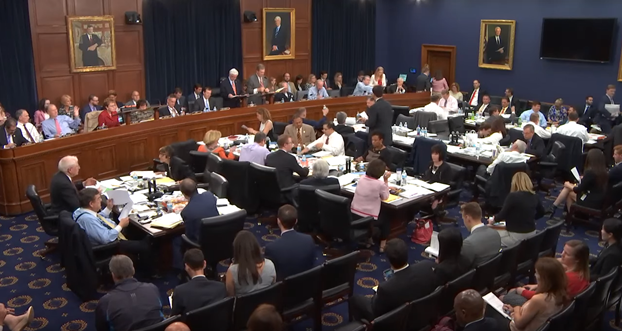 As we reported last week, earmarks are back for the first time in a decade. Last week, the House Appropriations Committee released further details on how specifically the “Community Project Funding” will work. Each member of Congress will be allowed to submit ten projects. Committee Chair Rosa DeLauro has limited the overall pot of earmark money to 1 percent of the total federal agency budgets that her committee controls—which would have been $14 billion out of the more than $1.4 trillion in the 2021 fiscal year. Read the guidelines so far here. However, it is not all kumbaya in D.C. Republicans opposed to earmarks worry that their return will be used as a way to win support for legislation that otherwise might lack the support to pass, providing new projects for those lawmakers on the fence. Earmarks, in this line of thinking, are a legislative “gateway drug” to more federal spending.
As we reported last week, earmarks are back for the first time in a decade. Last week, the House Appropriations Committee released further details on how specifically the “Community Project Funding” will work. Each member of Congress will be allowed to submit ten projects. Committee Chair Rosa DeLauro has limited the overall pot of earmark money to 1 percent of the total federal agency budgets that her committee controls—which would have been $14 billion out of the more than $1.4 trillion in the 2021 fiscal year. Read the guidelines so far here. However, it is not all kumbaya in D.C. Republicans opposed to earmarks worry that their return will be used as a way to win support for legislation that otherwise might lack the support to pass, providing new projects for those lawmakers on the fence. Earmarks, in this line of thinking, are a legislative “gateway drug” to more federal spending.
Back in New York…
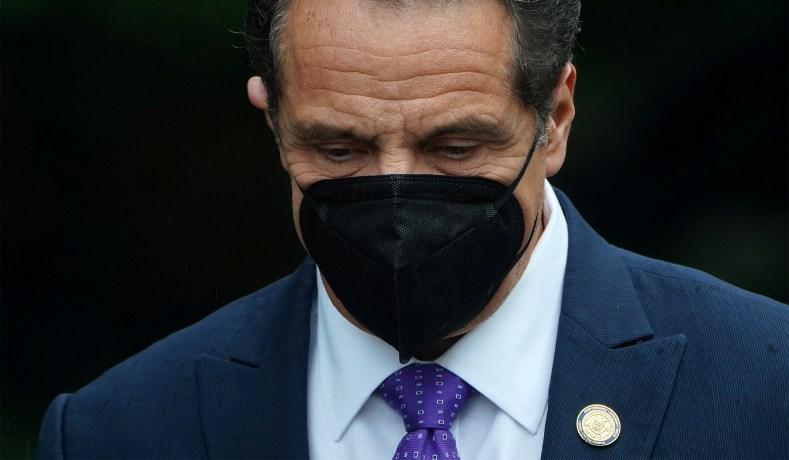 While we rapidly close in on the April 1st budget deadline—Governor Andrew Cuomo’s future, let alone his spot at the budget negotiating table, remains uncertain. The Albany Times Union on Thursday reported that a female aide accused the Governor of forcibly touching her at the Executive Mansion, which set off a cascade of calls for the Governor’s resignation from New York’s top Democrats including United States Senate Majority Leader Chuck Schumer, United States Senator Kirsten Gillibrand, a majority of New York State’s Congressional Delegation (including long-time allies like Rep. Joe Morelle (D-Rochester)), State Comptroller Tom DiNapoli, and more than half of the State Legislature. However, Cuomo has remained defiant, saying he will not bow to “cancel culture.” There were further serious concerns raised yesterday about Cuomo ally Larry Schwartz’s dual roles as vaccine czar and political enforcer.
While we rapidly close in on the April 1st budget deadline—Governor Andrew Cuomo’s future, let alone his spot at the budget negotiating table, remains uncertain. The Albany Times Union on Thursday reported that a female aide accused the Governor of forcibly touching her at the Executive Mansion, which set off a cascade of calls for the Governor’s resignation from New York’s top Democrats including United States Senate Majority Leader Chuck Schumer, United States Senator Kirsten Gillibrand, a majority of New York State’s Congressional Delegation (including long-time allies like Rep. Joe Morelle (D-Rochester)), State Comptroller Tom DiNapoli, and more than half of the State Legislature. However, Cuomo has remained defiant, saying he will not bow to “cancel culture.” There were further serious concerns raised yesterday about Cuomo ally Larry Schwartz’s dual roles as vaccine czar and political enforcer.
Even if the Governor does not resign (and, on Friday, he forcefully reiterated that he will never resign and we believe he will not resign unless or until he is forced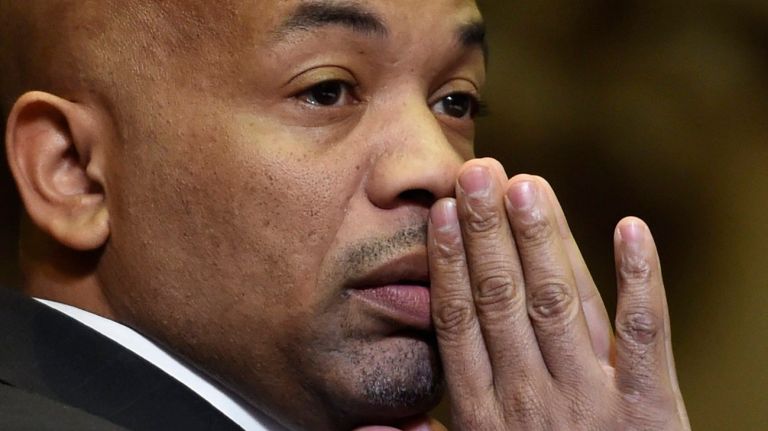 to do so), Cuomo now faces an impeachment investigation in the Assembly. Last week, Speaker Carl Heastie authorized the Judiciary Committee to start an investigation into the allegations. The panel’s investigation into the New York governor—which would run parallel to the one already being led by the state Attorney General, Letitia James—would be authorized to interview witnesses, subpoena documents and evaluate evidence. Read more on what you can expect in the impeachment process from our Managing Partner, and author of Bitten By the Tiger: The True Story of Impeachment, the Governor & Tammany Hall, Jack O’Donnell himself here. (More media coverage below.)
to do so), Cuomo now faces an impeachment investigation in the Assembly. Last week, Speaker Carl Heastie authorized the Judiciary Committee to start an investigation into the allegations. The panel’s investigation into the New York governor—which would run parallel to the one already being led by the state Attorney General, Letitia James—would be authorized to interview witnesses, subpoena documents and evaluate evidence. Read more on what you can expect in the impeachment process from our Managing Partner, and author of Bitten By the Tiger: The True Story of Impeachment, the Governor & Tammany Hall, Jack O’Donnell himself here. (More media coverage below.)
Finally, and more substantially, while Conferences in both Houses of the Legislature debated resignation, impeachment, and how to handle multiple allegations against the Governor, legislative staff and members still found time to work on their Legislative “One House” Budget proposals. Both Houses released their proposals over the weekend (Read the Senate Proposals: Transportation, Economic Development, and Environmental Conservation Article VII; Revenue Article VII; Public Protection and Good Government Article VII; Education Labor and Family Assistance Article VII; Health & Mental Hygiene Article VII, and the Assembly Proposals: Transportation, Economic Development, and Environmental Conservation Article VII; Revenue Article VII; Public Protection and Good Government Article VII; Education, Labor, and Family Assistance Article VII; Health & Mental Hygiene Article VII). Both Chambers are expected to pass their One House budgets today. From there, the Joint Budget Conference Committees will commence this week—starting with a General Conference Committee (“The Mothership”) today shortly after both Chambers pass the bills.
— Jack O’Donnell
FOR DAILY UPDATES, FOLLOW US:
What Happens if Cuomo is Impeached
How does the controversy surrounding Governor Cuomo affect the budget process? Jack talks to WKBW-TV Reporter Gilat Melamed here.
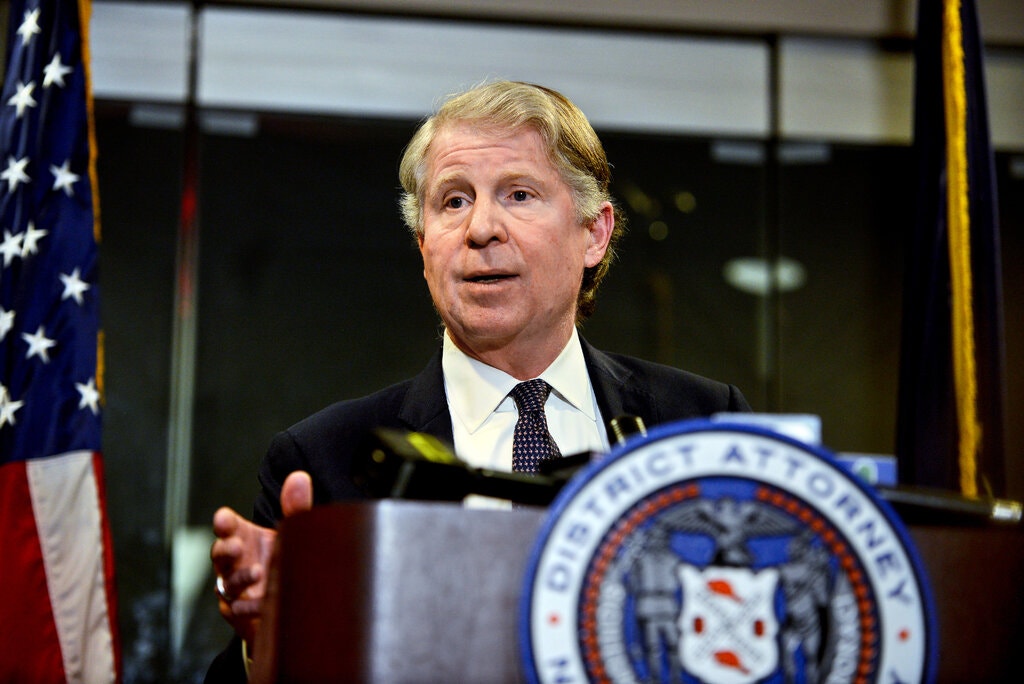
Cyrus Vance Will Not Run Again for Manhattan D.A.
Cyrus R. Vance Jr., the Manhattan district attorney, announced he would not run for re-election, likely leaving the probe of former President Trump to his successor. [Read more.]
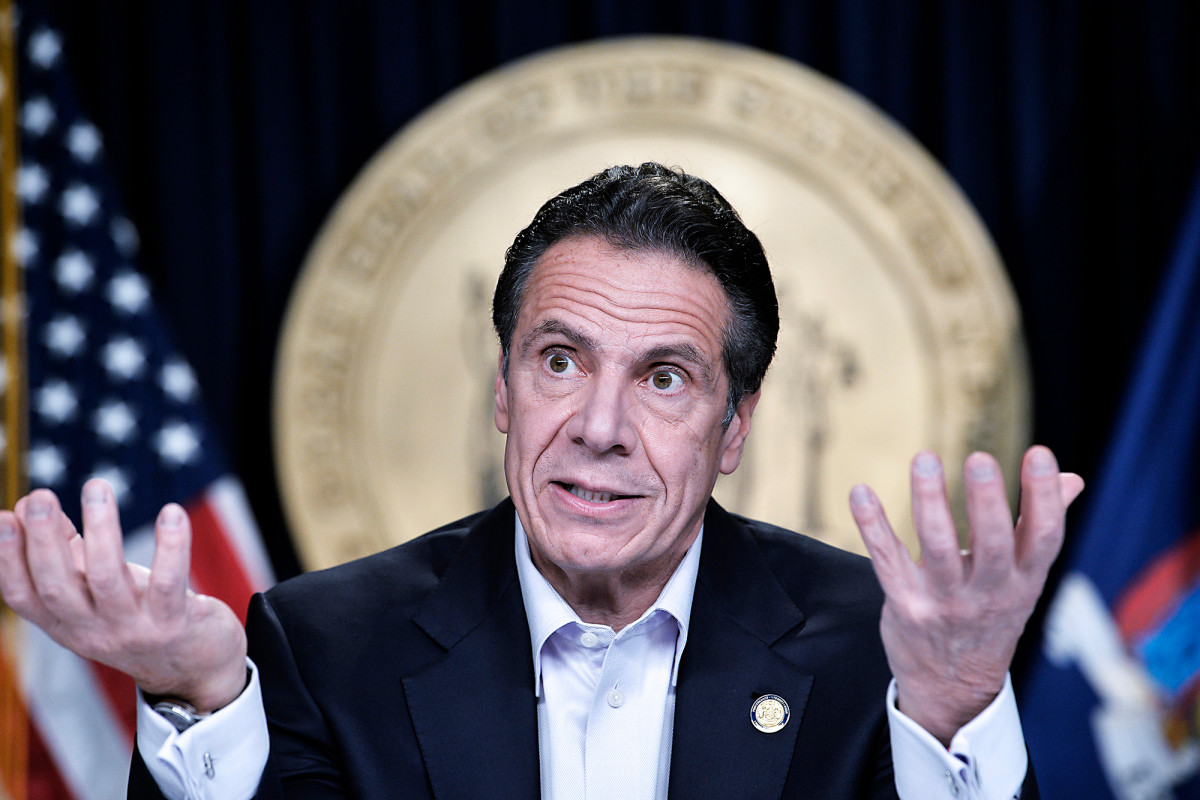
This Fertilizer King Funneled Cuomo $1 Million—and Got a New York Health-Care Empire
Cuomo’s administration enabled fertilizer billionaire Alex Rovt to build a new empire in New York’s hyper-subsidized health-care industry. [Read more.]

It’s Time to Dump Daylight Saving
It’s that time of year when we “spring ahead” and switch to daylight saving time. There is a good chance that this annual adjustment of the clock will damage not only your wallet but your health, too. [Read more.]
Irish Language Phrases to Use When Your Temper is Up

Tweet of the Week
New York Governor Andrew Cuomo walks on the grounds of the Governor’s Mansion following allegations that he had sexually harassed young women, in Albany. Photo by Angus Mordant.
O’Donnell & Associates 2021
Preview of New York Policy & Politics
NYS Legislature: New Member Spotlight
Assembly Member Marcela Mitaynes (D), 51st Assembly District
Assembly Member Marcela Mitaynes was elected to represent the 51st Assembly District, which includes the Brooklyn neighborhoods of Red Hook, Sunset Park and northern Bay Ridge, after narrowly defeating incumbent Felix Ortiz (D), in the 2020 Primary election.
and northern Bay Ridge, after narrowly defeating incumbent Felix Ortiz (D), in the 2020 Primary election.
Marcela has lived in the district—specifically in Sunset Park, Brooklyn—for most of her life. As a child, she migrated from Peru to New York City with her family.
Assembly Member Mitaynes is new to politics and government, but prior to her run for the Assembly, Marcela was very active in her community. She served as the president of the PTA at P.S. 169 in Sunset Park. As president, Marcela worked with other PTA members to foster greater educational opportunities for students. Marcela also served as a member of Community Board 7 for 10 years.
Assembly Member Mitaynes interest in social activism really took off when she was abruptly evicted from her rent-stabilized apartment of 30 years. She immediately took action, working with Neighbors Helping Neighbors and other tenants across New York State on comprehensive reform. Ultimately, Marcela’s activism helped lead to the passage of the Housing Stability and Tenant Protection Act of 2019, which significantly strengthened tenants’ rights in rent-stabilized apartments.
In Albany as Chair of the Subcommittee on Regulated Mortgage Lenders, Assembly Member Mitaynes is looking to continue her efforts in comprehensive policy reform, focusing her energy on bringing the people of her district and residents of New York greater social equity and social justice. This session, Assemblywomen Mitaynes is strongly advocating for a freeze on rent, as hundreds of tenants across New York State are at risk of eviction.
This session, Assembly member Mitaynes will also serve on the Committees on Banks, Children & Families, Education, Judiciary, Transportation, and Women’s Issues.



